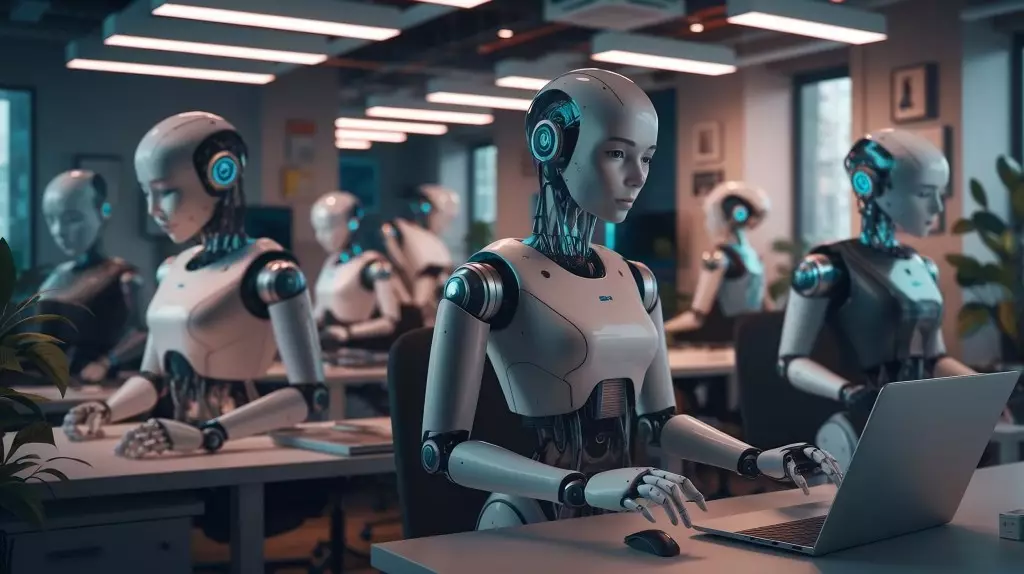The rapid integration of Artificial Intelligence into the software development landscape is fundamentally reshaping what it means to be a coder. For decades, the traditional career trajectory in tech was straightforward: beginners start with simple tasks—HTML layouts, basic scripting, and configuration—then gradually take on more complex roles. These foundational skills laid the groundwork for becoming a seasoned developer, architect, or product leader. However, the advent of sophisticated AI tools like ChatGPT, GitHub Copilot, and Amazon CodeWhisperer signals a seismic shift, rendering many early-level tasks obsolete or significantly simplified. This isn’t merely about efficiency; it’s about a transformation of skills, roles, and expectations across the industry.
Unlike traditional pathways, future developers must now cultivate a new set of competencies—ones that go beyond rote coding. Instead of relying solely on manual programming, they will need to understand systems at a conceptual level and orchestrate AI as an active partner in the creative process. The software engineer of tomorrow is expected to think strategically about product development, design workflows, and manage AI outputs, blurring the lines once clearly defined between roles like junior, mid-level, and senior. The challenge lies in navigating this unfamiliar terrain without losing sight of the fundamental knowledge that underpins software craftsmanship.
Rethinking Learning in an AI-Integrated World
The traditional emphasis on hands-on coding, debugging, and problem-solving may no longer suffice as the primary learning strategy. While initial training involved repetitive exercises to build intuition, it’s now crucial to develop a deeper conceptual understanding of how software functions under the hood. Skipping the manual practice risks creating developers who are proficient only at formatting queries or tweaking AI outputs but lack the foundational insight to troubleshoot or innovate independently.
This shift calls for a pedagogical overhaul—an emphasis on systems thinking, architecture principles, and the strategic use of AI tools. Aspiring developers should view AI not as a crutch but as a co-creator that enables them to focus on higher-order skills such as designing scalable systems, understanding user experience, and aligning technical solutions with business goals. Those who succeed will be those who cultivate a hybrid skill set: a blend of creative problem-solving, domain knowledge, and strategic thinking that leverages AI’s capabilities without becoming overly dependent on it.
The Evolving Role of Teams and Collaboration
Team structures in software development are poised for dramatic change. The old model relied on specialists—front-end experts, back-end engineers, testers, DevOps practitioners—working in concert to build complex systems. Now, AI-driven automation threatens to consolidate these roles. A single, well-equipped developer with AI assistance might perform tasks that previously required a full team, from deployment pipelines to code reviews.
This technological consolidation will alter collaboration dynamics. Instead of coordinating individual specialties, teams of fewer members will focus on overarching strategies—product vision, customer insights, and AI governance. Human input will shift from manual implementation to guiding AI-generated solutions, ensuring that technology aligns with ethical standards, user needs, and business objectives. The emphasis on strategic decision-making and oversight will become the core value of a human-led team.
The Future Developer: A Multidisciplinary Innovator
Looking ahead five to seven years, the identity of a software developer is unlikely to stay static. Instead of a narrowly focused specialist, the future will demand hybrid professionals—people who blend technical expertise with design sensibility, product management acumen, and leadership capabilities. The boundaries between roles will blur, creating versatile individuals capable of navigating complex ecosystems of AI, software, and user experience.
Core skills will evolve from coding proficiency to system design, strategic thinking, and responsible AI management. Knowledge of machine learning, data ethics, and system architecture will become as fundamental as traditional programming languages. Such a developer will excel at translating abstract ideas into actionable AI-powered solutions, orchestrating technology to create meaningful value.
For some, these changes may feel daunting—an abandonment of familiar pathways. For others, they present a frontier of opportunities: to lead innovation, to shape the future of software, and to redefine the very nature of problem-solving. The most successful professionals will be those who embrace lifelong learning, continuously adapt, and view AI as an essential partner rather than a competitor.
The end of junior coding as it once existed doesn’t spell doom; it signals a renaissance in how we conceive technical talent. Instead of lamenting lost tasks, the industry must pivot toward cultivating skills that machines cannot replicate—creativity, strategic vision, and complex problem-solving. The real challenge lies in reorienting educational pathways, company training programs, and individual mindset.
Those who adapt swiftly and wholeheartedly to this evolution will find themselves not marginalized but empowered. The landscape may be shifting, but within that volatility lies the potential to create a more innovative, efficient, and human-centered technology industry. Embracing AI as a collaborative partner opens doors to roles and responsibilities previously unimaginable—ushering in an era where the true power of software development hinges on human ingenuity combined with machine intelligence.

